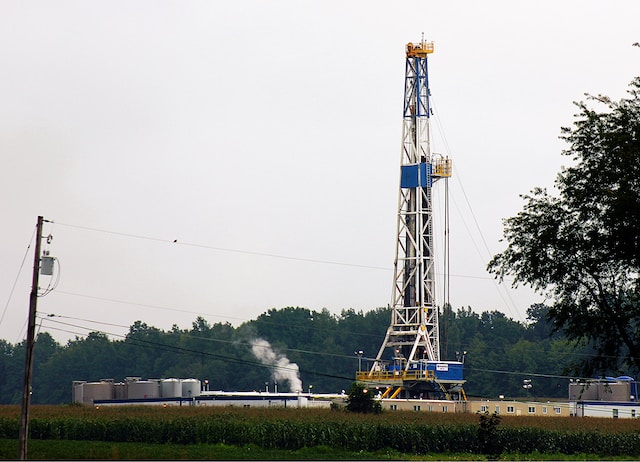By Josh Fox
Anti-Fracking Campaigners: We Won’t Be Silenced
Gasland was intended to be both a chronicle of the way in which oil and gas companies have used vast sums of money to shield fracking from virtually all federal, state, and local regulations and a cautionary tale about the toll the process takes on people and the environment.
Fortunately, the message of the film is getting through. Recent surveys show that 4 out of 5 Americans are concerned about fracking’s effect on our drinking water and seven out of ten Ohioans believe the process should be stopped until we know more about its effect on the environment and its relation to a series of earthquakes that have rocked the Northeastern part of the state.
The bottom line: fracking is not safe. It has never been proven safe and it will never be made safe. The industry admits that well casing problems occur in 50 percent of wells over the life of the well. That means that 50 percent of gas wells can be expected to leak chemicals, hydrocarbons, volatile organic compounds, carcinogens and neurotoxins directly into groundwater. The industry has never been able to solve this problem although they have been trying for decades and they have admitted that there is no solution to the problem. Safe fracking is simply an impossibility. If the state allows further drilling, it is trading water for gas. It is trading the short-term windfall profits of huge gas companies for our public health and the permanent poisoning of our ground water.
Unfortunately, Governor John Kasich and the Republican majority in the Ohio General Assembly, like so many members of Congress and officials in other states, have decided to listen to the siren song of the industry rather than the concerns of their constituents and the growing body of scientific research that is shining a brighter and brighter spotlight on the dangers of fracking. It’s no accident that the governor is delivering his State of the State address in the hotbed of fracking in Ohio.
He’ll undoubtedly praise the industry and the jobs it promises to create in an attempt to divert attention from the fact that those jobs come at a steep cost to the environment and public health.
He won’t mention that as he is speaking in Steubenville on Tuesday or the five bills designed to address environmental and health concerns related to fracking that are languishing in the Ohio House and Senate in Columbus because the industry does not want them to be heard.
He won’t mention that oil and gas producers now pay state taxes on the “honor system.” As unbelievable as it may seem, the industry tells the state how much gas they’ve extracted and pays taxes based on that figure. There’s no oversight or monitoring. In fact, the state lacks the authority to check meters at the wellhead and compare those readings against the figures turned in by producers. The producers pay what they want to pay—no questions asked.
That’s an especially troubling thought when you consider that this industry is totally devoid of anything that even approaches honor—and that their tax liability could climb to as much as $40 million per year if they do all the fracking they want to do—and then accurately self-report the volume of gas they extract. Given their history, I think we can count on the former and forget about the latter.
The aversion to regulation and the truth about fracking in Ohio is nothing new. This is an industry built on secret deals, influence peddling and media manipulation. It is grounded on the exemptions from the Clean Air Act, Clean Water Act, and Superfund Act and, crucially to the Safe Drinking Water Act, from which fracking was exempted by Congress in 2005. It is fueled by the near universal desperation for jobs and economic development that exists in the regions where most fracking occurs.
Thankfully, however, the public is slowly but surely digging itself out from underneath the mounds of industry propaganda that has enabled them to punch tens of thousands of holes in the Earth without adequate oversight. The earthquakes that shook Northeast Ohio did more than scare residents, it raised very real questions about the process and its long term effects that people want answered, NOW.
I applaud the public officials and the environmental, public health, and community groups, and the thousands of concerned residents who are demanding answers from the industry and the elected officials who do their bidding. I urge you to continue the fight, to keep asking the hard questions—even if it means being arrested for seeking the truth as I was last week for merely attempting to record a public hearing in the U.S. House of Representatives.
Send this message to the industry and the politicians they control: we won’t be silenced. We can’t be bought. We will fight to keep our families and our communities safe.
From Common Dreams
Photo by Brad Weaver on Unsplash

